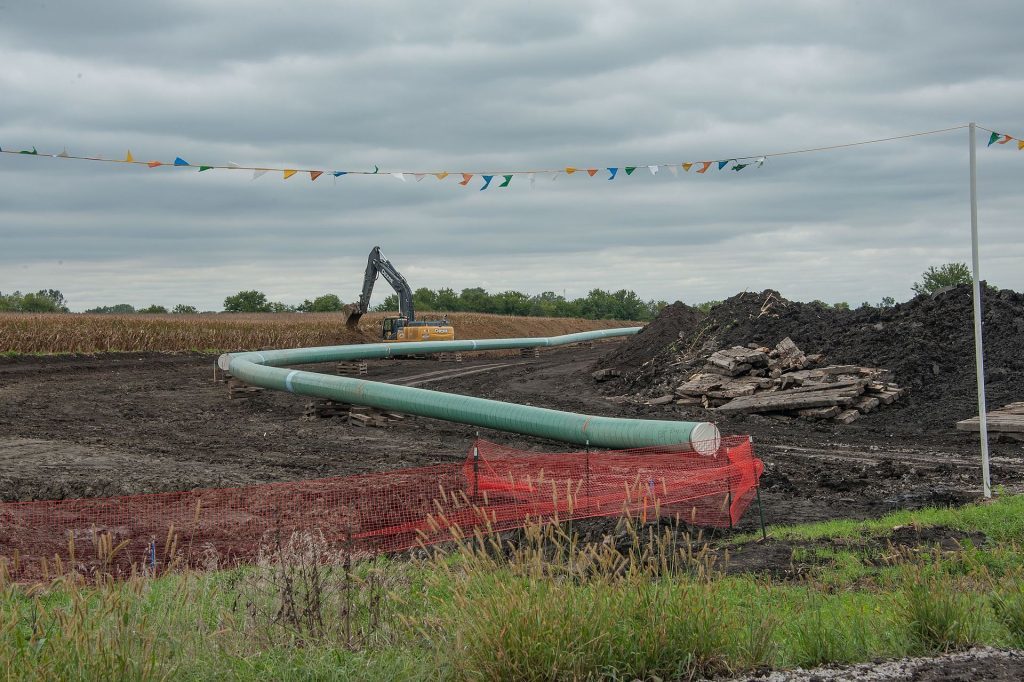
Billionaire pipeline magnate Kelcy Warren, who just months ago defeated environmentalists to finish his controversial Dakota Access oil pipeline, has stepped into the limelight once again — this time, to defend a natural gas line being built across the eastern U.S.
In a letter to U.S. lawmakers, Warren said he was “baffled” by federal energy regulators’ allegations that his company, Energy Transfer Partners LP, had violated rules in building the $4.2 billion, 700-mile (1,127-kilometer) Rover gas pipeline. The Federal Energy Regulatory Commission accused the company this month of falsely promising to avoid adverse impacts to historic resources while simultaneously working to destroy a historic house.
The letter was a rare public statement for Warren, who has largely stayed out of the spotlight even as Energy Transfer’s pipeline projects became mired in controversy. Thousands of protesters had camped out at the site of the Dakota Access crude pipeline before Warren issued a memo in its defense. While that pipeline is now in service, the company’s still racing to finish the Rover gas line. Regulators suspended work on portions of Rover after the company disclosed massive spills of drilling fluids and are still investigating the demolition of the house in Ohio.
Warren was responding to a letter that U.S. Senator Maria Cantwell and Representative Frank Pallone, both Democrats, had written to the Federal Regulatory Energy Commission, calling for an investigation into what they described as “troubling incidents” involving the Rover pipeline.
An investigation like that would be “both unprecedented and unnecessary,” Warren wrote in his letter to the lawmakers Monday. “We are only too happy to share the facts.”
Separately on Monday, Energy Transfer said Blackstone Group LP had agreed to pay about $1.57 billion in cash for a 32.44 percent stake in its Rover pipeline unit.
The Rover project is meanwhile already behind schedule. Up until two weeks ago, Energy Transfer had been projecting that the first part of the line would be in service by the beginning of July.
The delays have boosted U.S. natural gas futures as traders bet more of the fuel will need to be shipped from the Gulf Coast to meet demand. Once in service, the Rover system will be capable of moving more than 3 billion cubic feet of gas from eastern U.S. shale formations to other markets daily.
For its part, the energy commission said in a filing Monday that a third-party review of Energy Transfer’s drilling program for the Rover project in Ohio failed to confirm that the company complied with standards because its records were too limited.